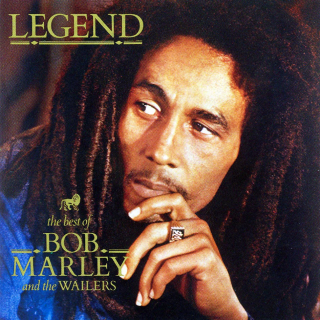Asked what it is about Marley that resonated (and continues to resonate) with college students, Steffens replies, “It’s herb, which is not quite as rebellious as it was once now that you have dispensaries on every other corner. But still, it has a little veneer of unacceptability about it. Also the fact that he was a rebel. No way around that fact. He was encouraging people to fight against every law and every government on this planet that is not legal. He said the only law that is legal is Jah’s law.”
That rebellious influence still found ways to push through even as the good-times associations with Marley rolled on. In 1992, Sinéad O’Connor sang an a cappella cover of Marley’s “War” on Saturday Night Live before ripping up a picture of Pope John Paul II. When she was greeted with boos at Madison Square Garden two weeks later during a Bob Dylan tribute concert, she stopped the backing band from playing the other canonical Bob’s “I Believe in You” and defiantly performed “War” again.
It’s not as if the non-righteous Bob Marley songs that became inescapable were conjured from nowhere or were unearthed from some hidden vault after his death. He recorded them, put them on albums, and regularly performed them. Bob Marley: One Love depicts the attempt on his life in Jamaica in December 1976 and the time he spent afterward in London recording Exodus before returning home to play the monumental One Love Peace Concert in May 1978. Side A of Exodus is indeed political, while side B features four of those seemingly innocuous songs featured on Legend. And it’s not Marley’s fault that there’s something about “Redemption Song,” a lamentation about the intergenerational mental trauma caused by chattel slavery, that makes people want to play it on an acoustic guitar when they’re sitting around a campfire.
“What [Legend] has done to forward Bob’s music to a demographic that wouldn’t necessarily listen to reggae or wouldn’t listen to Uprising or Confrontation or Catch a Fire or Burnin’ or any of those albums is huge,” says Dan Sheehan, the co-owner and producer of the California Roots Music and Arts Festival in Monterey.
